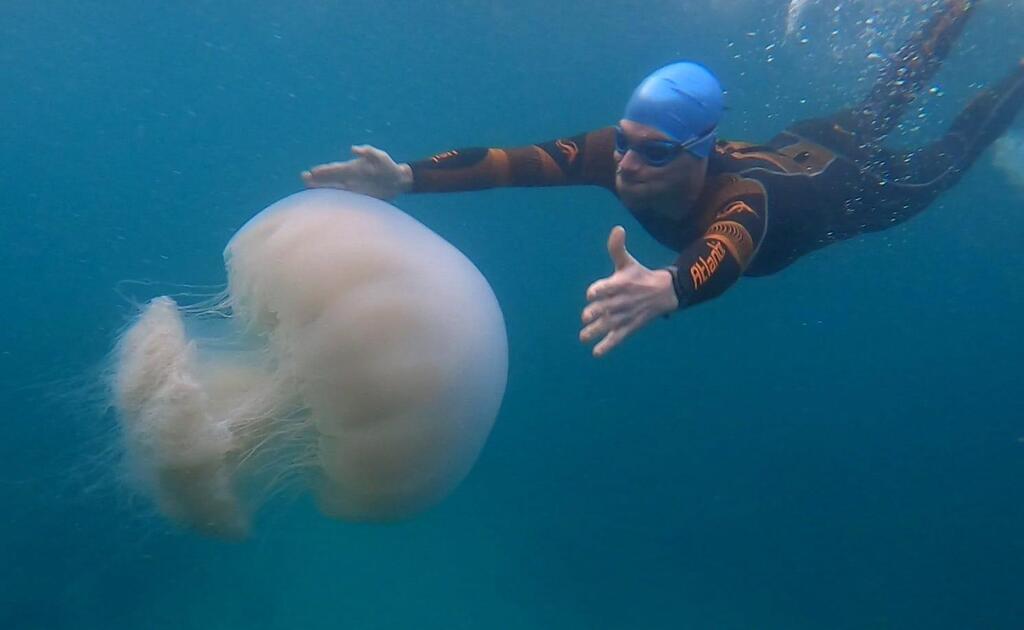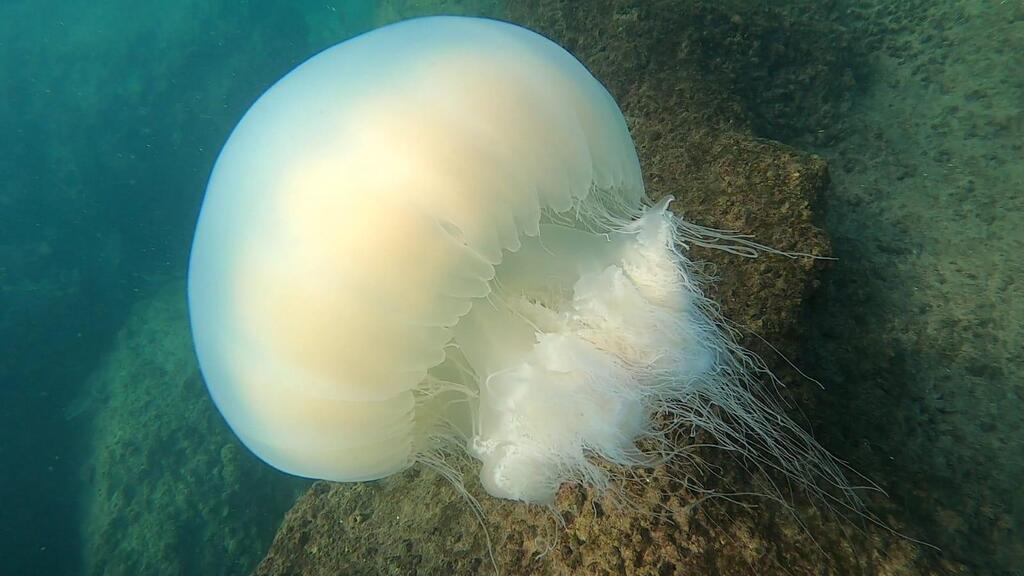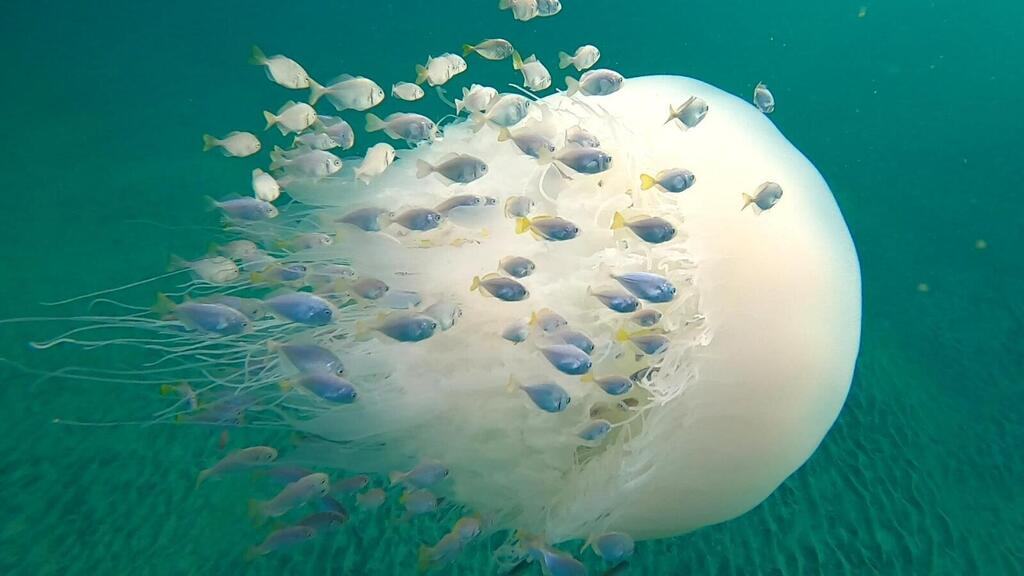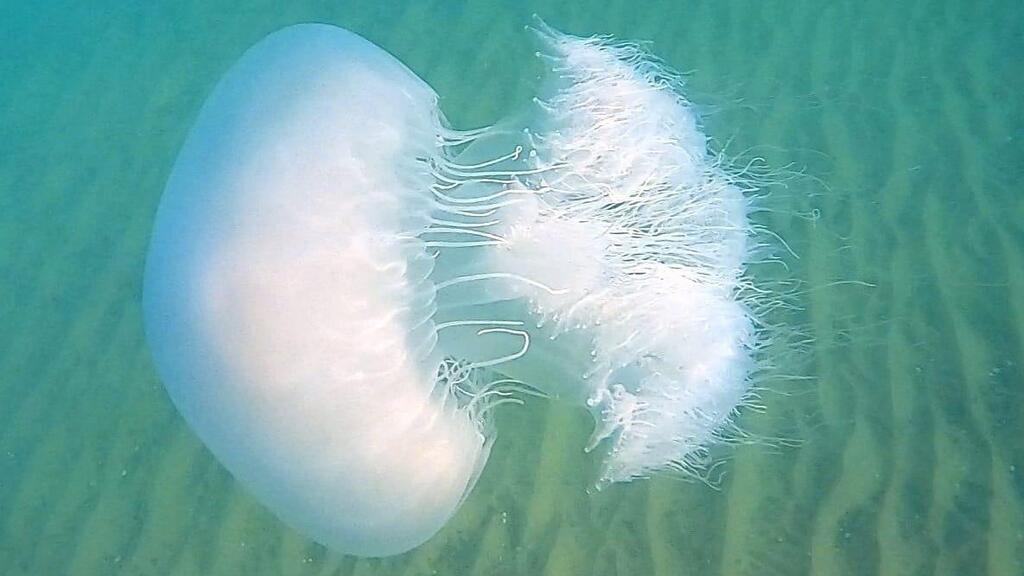Large jellyfish in Israel
(Video: Shai Minis, Nature and Parks Authority)
Giant jellyfish have arrived on Israeli shores in recent days, with researchers from the University of Haifa saying that one of the jellyfish reached an astonishing 30 kilograms in weight. Researchers are divided in their opinions as to whether these jellyfish will be seen in Israel in the summer.
More stories:
The jellyfish that have reached Israel belong to the Nomad jellyfish species. The Nomad jellyfish wasn’t seen in the Mediterranean Sea until the 1970s and is therefore considered an invading species. Often, the jellyfish can also endanger national infrastructure, and the Israel Electric Corporation is already preparing for their arrival in summer. These jellyfish may also damage water desalination plants and other industrial facilities.
Researchers estimate that global warming may lead to an increase in jellyfish swarms, alongside damage to local fish species.
Shai Minis, a volunteer in the Nature and Parks Authority and an open-water swimmer, said this wasn’t the first time he saw a giant jellyfish. "I swim in the sea all year round," he said, "and I always have a camera on me, to photograph what I encounter. And when you see a jellyfish underwater, you can see it’s a very complex creature.”
“There's a certain charm to it,” he added. “Sometimes we see nature as scary, but when you stop and inspect it, you discover its magic. Winter jellyfish are larger, but this time they may have been slightly larger. In winter, the large jellyfish can reach 80-90 cm in diameter."
Shlomi Yitzhaki, a resident of Kibbutz Palmachim where the jellyfish were seen, said this was his first time seeing such large jellyfish. "Sometimes there are big jellyfish in the winter," he said.
"One of the surfers got stung in the face by a giant jellyfish. It's unpleasant. I find something beautiful in jellyfish. I also love photographing them underwater. There's always something special about them. Most people don't see anything beautiful in them," he added.
The founders of the Israeli jellyfish tracking website Meduzot say large jellyfish will likely be arriving in Israel during the summer. However, Dr. Ruth Yahel, the marine ecologist in the Nature and Parks Authority, dampens their enthusiasm.
"Jellyfish are highly complex animals with many stages of life, Yahel explained. "We are currently seeing the swimming, and breeding stage of the jellyfish. After sperm cells and eggs meet, they have an asexual stage, and then new jellyfish are born in the water. It's quite a wild life cycle.
“It's difficult to know what each life cycle needs to thrive. We know that after cold winters, when the sea is stirred and there are many nutrients rising from the seabed, we see many jellyfish in the region. But it's all speculative. Last summer, before which there was a hot winter, there wasn’t any food for the jellyfish, and we enjoyed a jellyfish-free summer."
Yahel added that it’s impossible to say for sure whether jellyfish will fill Israeli shores in the summer. "The recent winters and the significant changes in temperatures and weather patterns, following global changes, create an imbalance. We still can’t say what kind of summer we’ll have. The jellyfish life cycle is complex, and it's still too early to tell," she said.
She noted that large jellyfish know how to swim, and strong currents likely brought them to the shore. "Studies show that they know how to avoid reaching the shore," she explained. "We’re trying to understand how we can protect the marine ecosystem from jellyfish swarms, as they compete with fish for food. They have a significant impact on the marine ecological system."








